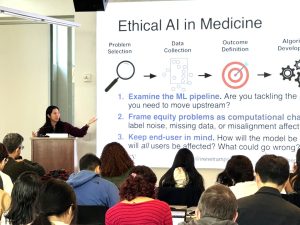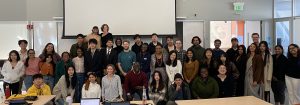By Kate Fenimore
An occasional series with Blum Center and Development Impact Lab faculty, staff, students, visitors, and friends.
Peter Jerram served as CEO of the PLOS | Public Library of Science, a nonprofit, open access, and peer-reviewed academic publisher that began in 2000 with an online petition initiative by Nobel Prize winner Harold Varmus, Stanford University biochemist Patrick O. Brown, and UC Berkeley computational biochemist Michael Eisen, urging scientific and medical publishers to make research literature available for distribution through free online public archives. During Jerram’s six-year tenure, PLOS published about 85,000 articles representing the efforts of authors, editors, reviewers, and staff from more than 200 countries. He is currently managing director of Itertiv, a business model design and product innovation consulting firm.
1. Why are open access journals important?
At minimum, they’re important because the public has a right to the results of research it’s already paid for through tax dollars funding. The National Institutes of Health, for example, has a $30.1 billion annual budget. And academic libraries shouldn’t have to pay exorbitant journal subscription fees for information that has in effect already been funded. Most important of all, wide access to the results of research will allow a much broader cross-section of people to engage with the information, to discuss and interpret it, and even to assess its impact. All of this will accelerate progress in science and other endeavors.
2. Tell us about an exciting development in your field that has happened in the last year?
The steady growth, especially in the last year, of academia.edu is very encouraging. It’s a kind of social network where academics can post their own research immediately, and get analytics about how it is being viewed and used. The site is free for anyone to use, and has 12 million academics signed up—an astonishing number representing about two thirds of academics worldwide. This is challenging the very nature of academic journals, and ultimately I believe it will help bring about the accelerated progress that traditional journals have systematically blocked.
3. Where do you see the future of online information sharing headed in the next five to 10 years?
I think that the so-called semantic web, which has been talked about for years, will finally fulfill its promise. The term refers to efforts to make the entire web machine readable in ways that will truly unlock the power of information. This goes well beyond access and sharing: it involved opening the vast web to machines that will unleash a host of evolving computational tools, which will profoundly advance human progress.
Peter Jerram can be reached at pj@itertiv.com.





